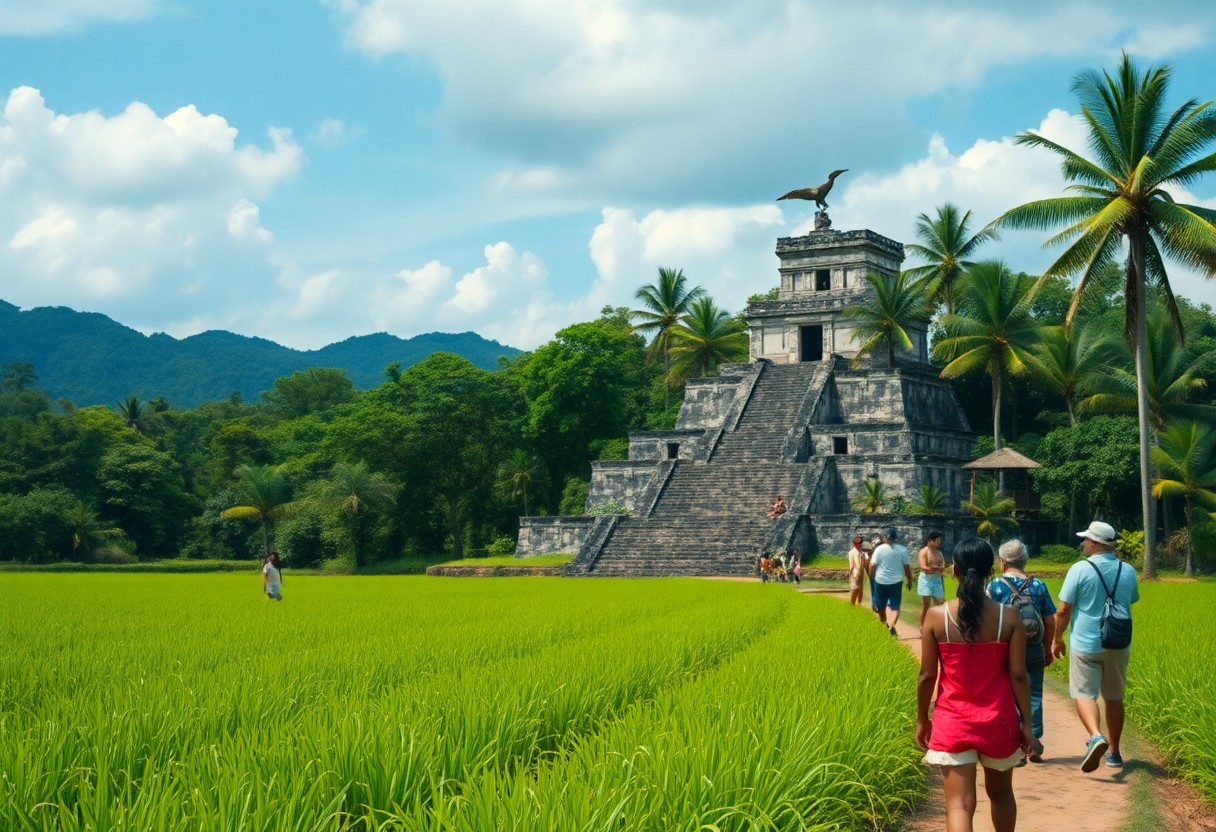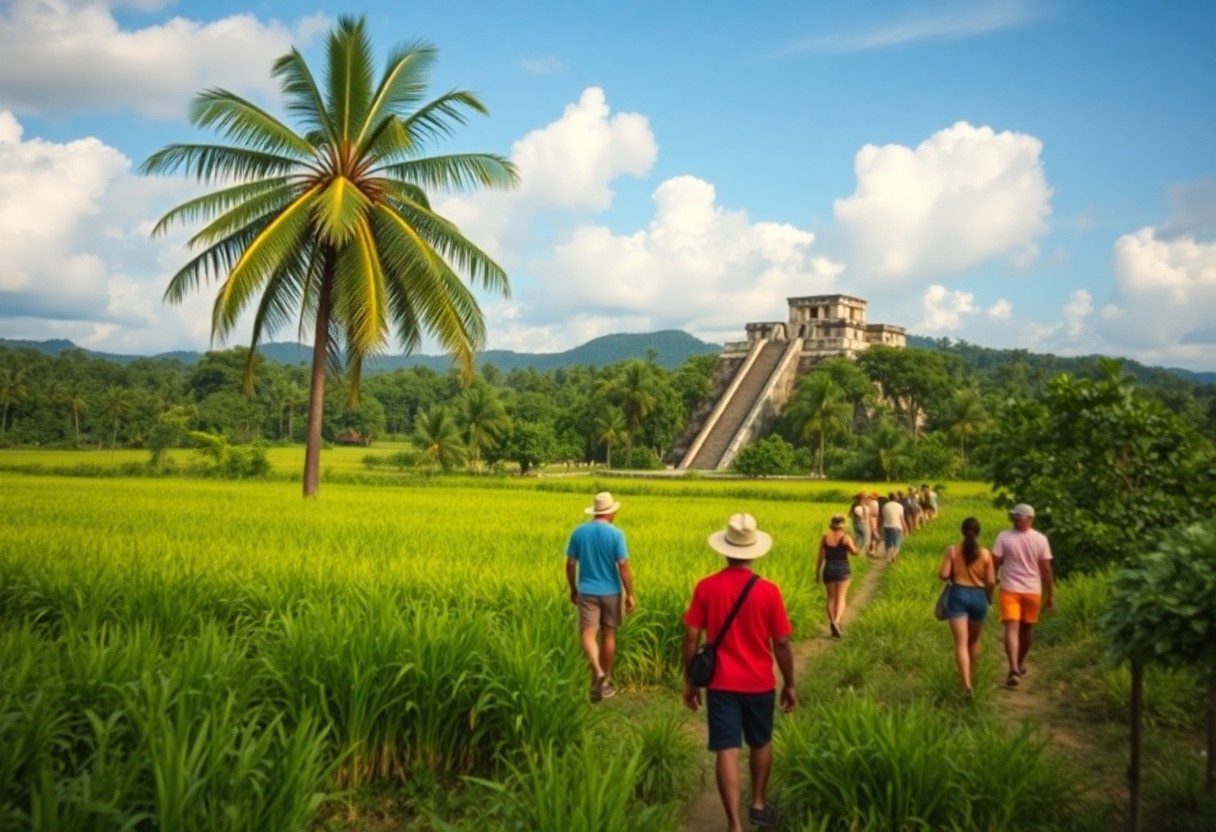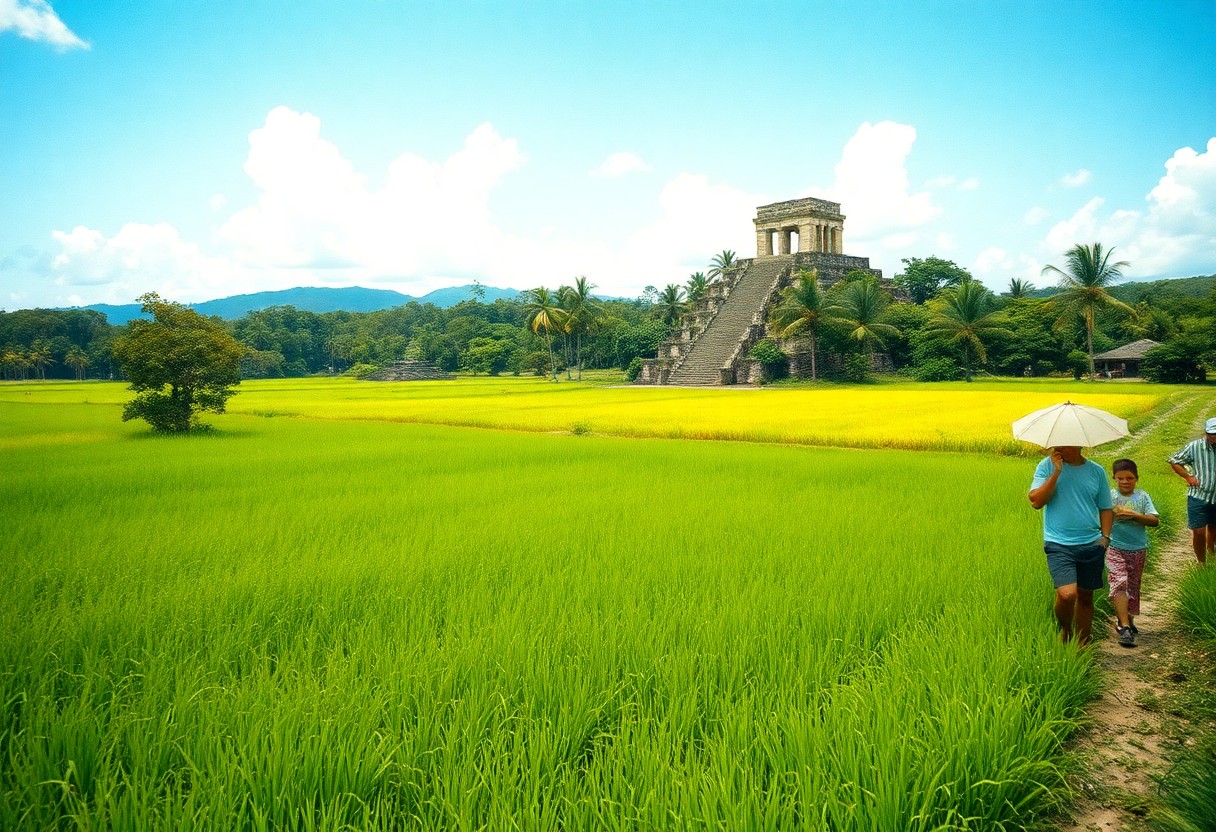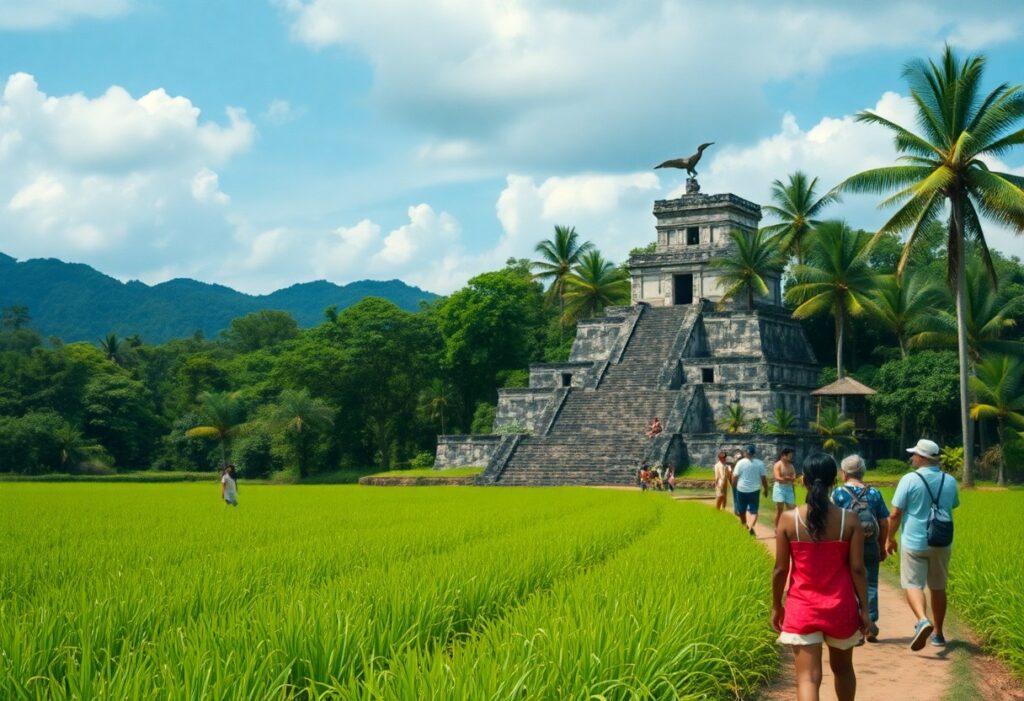The economy of Belize serves as a vital component that profoundly shapes the nation’s landscape, revealing a dynamic economic ecosystem that is transitioning from traditional sectors to innovative sustainable industries. You may be intrigued to learn that the foundation of Belize’s economic structure is primarily anchored in agriculture, with pivotal crops like sugar, bananas, and citrus fruits playing essential roles in its early development. However, the burgeoning ecotourism sector now offers transformative opportunities for the nation’s economy. As you explore Belize’s economic evolution, you will discover how the country cleverly capitalizes on its pristine natural environment to attract global investors and tourists, crafting a unique economic model that aligns environmental sustainability with economic progress. By understanding these dynamic shifts, you will cultivate a deeper appreciation for Belize’s unwavering commitment to economic sustainability.

Delving into the Rich Historical Context of Belize's Economy
The economic landscape of Belize has been intricately influenced over centuries by a myriad of colonial interactions and extensive natural resource exploitation. The economic history of this region can be traced back to the impactful presence of indigenous Maya civilizations, which established a foundation for subsequent developments. Following this era, British colonial powers reshaped the region into a resource-extraction economy, with British settlers, known as Baymen, initially focusing on extracting valuable timber and creating trade networks that drastically transformed Belize’s economic underpinnings. This colonial period was instrumental in setting the stage for the economic transformations that would follow, paving the way for modern economic activities.
Unpacking the Historical Significance of the Logging Industry
During the 18th and 19th centuries, the extraction of mahogany and logwood took center stage in Belize’s economic activities. You will observe that these highly sought-after timber resources attracted British entrepreneurs who established extensive logging camps and developed refined extraction techniques. The logging industry emerged as a principal economic force, creating a robust international trade network that positioned Belize as a key timber exporter in the Caribbean. This thriving industry not only propelled economic growth but also laid a strong foundation for future economic endeavors and diversification.
The Emergence and Dominance of Sugar and Bananas in Belize's Economic Landscape
Between the late 19th and early 20th centuries, agricultural commodities began to solidify their importance as crucial economic sectors for Belize. You will notice that sugar and banana production eventually overtook logging as the principal economic activities, becoming vital export commodities that fundamentally reshaped the agricultural landscape and created new economic opportunities for local farmers and international traders alike. Understanding Belize’s agricultural evolution unveils a complex economic transformation, with sugar production gaining prominence and leading to the establishment of extensive plantations employing advanced cultivation techniques. The banana industry also flourished, evolving into a key export sector that generated significant economic prospects. Major international companies, like Fyffes, played a crucial role in developing banana plantations, which later became a major source of foreign exchange for the nation.

The Rapid Expansion of Belize's Thriving Tourism Sector
If you are examining the economic transformation of Belize, you will find that tourism has emerged as a pivotal economic driver. This sector has experienced rapid growth, attracting international visitors with its diverse landscapes and rich cultural experiences. Presently, tourism contributes around 40% to the nation’s GDP, underscoring a notable shift from a traditional agricultural economy towards a more diversified economic framework. The government has strategically positioned Belize as a premier travel destination for those seeking authentic and sustainable travel experiences, capitalizing on its natural beauty and cultural richness.
Discovering the Rise of Eco-Adventures in Belize
Between 2010 and 2019, Belize witnessed an extraordinary surge in eco-tourism, reflecting the increasing global enthusiasm for sustainable travel. You will find that adventure travelers are drawn to the country’s untamed rainforests, diverse wildlife reserves, and significant archaeological sites. Sustainable tourism practices have become integral to Belize’s tourism strategy, enticing eco-conscious visitors who seek meaningful interactions with nature and local communities, ultimately fostering a deeper appreciation for both the environment and local cultures.
Exploring the Economic Impact of Reef-Based Tourism in Belize
The tourism sector along Belize’s coastal areas has revolutionized the nation’s economic landscape. You will be enthralled by the Belize Barrier Reef, a UNESCO World Heritage site that attracts marine enthusiasts from around the world. Activities such as diving, snorkeling, and marine exploration have become essential revenue-generating activities, luring thousands of international tourists each year. This iconic reef stretches approximately 300 kilometers and showcases one of the most diverse marine ecosystems globally. Marine tourism alone generates over $180 million annually, providing vital support to local communities and conservation initiatives. The reef’s ecological significance and vast tourism potential make it an invaluable economic asset, drawing marine biologists, conservationists, and adventure seekers alike.
Here’s the content for the chapter and subsections:
Confronting Economic Challenges Facing Belize
While Belize is navigating significant economic challenges that hinder its development, you will encounter a complex array of issues ranging from structural limitations to external pressures. The nation grapples with obstacles such as limited economic diversification, high unemployment rates, and susceptibility to global economic fluctuations, all of which restrict its potential for sustained growth and prosperity. Understanding these challenges is crucial for gaining a comprehensive understanding of Belize’s economic landscape.
The Ongoing Challenge of National Debt in Belize
Throughout Belize’s economic history, national debt has consistently posed a formidable challenge. You will notice that the country grapples with one of the highest debt-to-GDP ratios in the Caribbean, significantly limiting the government’s ability to invest in essential infrastructure and social programs. This financial burden severely constrains economic expansion and deters prospective international investments, underscoring the urgent necessity for effective fiscal strategies to address this critical issue.
The Dangers of Natural Disasters on Economic Stability
From an environmental perspective, you will find that Belize is particularly vulnerable to climate-related disruptions. Natural disasters such as hurricanes, tropical storms, and flooding present substantial threats to both the agricultural and tourism sectors, leading to recurring economic setbacks and requiring significant reconstruction investments. A deeper examination reveals that natural disasters involve more than just immediate economic damage; they create long-term vulnerabilities that disrupt agricultural productivity, damage essential infrastructure, and undermine the tourism industry. The coastal regions are especially at risk, with rising sea levels and increased storm intensity jeopardizing the stability of both the economy and local communities.

Examining Belize's Dependency on Imports
To fully understand Belize’s economic framework, it is essential to recognize its significant dependency on imports. With limited domestic manufacturing capabilities, you will find that the country relies heavily on importing essential goods such as machinery, fuel, and consumer products. This economic vulnerability means that nearly 50% of consumed goods come from external markets, predominantly the United States. While this reliance on imports presents challenges for local economic stability, it also underscores Belize’s interconnectedness within the global trade environment. These imports are crucial for supporting the nation’s infrastructure, fostering technological advancements, and meeting consumer demands.
Forecasting Belize's Economic Future: Opportunities and Growth
Despite facing various economic challenges, Belize is strategically positioning itself for transformative growth through diversification and innovative economic strategies. You will observe that the country is harnessing its natural resources, promoting sustainable tourism, and enhancing digital infrastructure to create new economic opportunities. Belize’s potential lies in its ability to harmonize traditional sectors like agriculture with burgeoning industries such as technology and eco-friendly services, promising to improve economic resilience and attract global investment.
Leading the Charge with Sustainable Initiatives in Belize
Belize is increasingly prioritizing environmental preservation alongside economic advancement. You can see the government’s commitment to green initiatives, which include renewable energy projects, conservation-focused tourism, and sustainable agricultural practices. These efforts are aimed at safeguarding the nation’s rich biodiversity while forging economic pathways that promote ecological integrity and community development, propelling Belize towards a more sustainable future.
Fostering Foreign Investment for Economic Advancement
Alongside these economic strategies, Belize is actively courting international investors across various sectors. You will notice targeted initiatives in tourism, agriculture, and emerging digital industries that promise attractive returns and strategic partnerships. The government is implementing investor-friendly policies designed to position the country as an appealing destination for global capital. Belize offers unique investment opportunities across sectors such as eco-tourism, renewable energy, and agricultural technology. The nation’s strategic location, combined with progressive economic policies, enhances its attractiveness as an investment destination. Potential investors are drawn to Belize’s stable political climate, tax incentives, and commitment to sustainable development, which help to mitigate traditional investment risks while providing promising long-term growth prospects.
Reflecting on the Evolution of Belize's Economic Landscape
In light of these insights, it becomes clear how Belize has meticulously transformed its economic landscape from traditional agriculture to a multifaceted, sustainable model. Your understanding of the country’s economic evolution reveals a dynamic shift towards services, tourism, and ecotourism. By adeptly leveraging its natural resources and rich biodiversity, Belize has crafted a resilient economic framework that balances growth with environmental preservation. You will appreciate how the nation has effectively diversified its economic sectors, positioning itself as an attractive destination for international investment and sustainable development. This adaptive strategy ensures that Belize continues to cultivate a robust and forward-thinking economic vision.
Frequently Asked Questions About the Economy of Belize
Q: What are the key economic sectors propelling Belize’s growth?
A: Belize’s economy is primarily supported by three main sectors: agriculture, tourism, and services. Agricultural exports such as sugar, bananas, and citrus fruits significantly contribute to national income. The tourism industry, particularly ecotourism, generates substantial revenue by leveraging Belize’s diverse natural landscapes and rich marine ecosystems. Additionally, service industries, including financial services and international trade, complement these fundamental economic drivers.
Q: How does ecotourism contribute to the economic development of Belize?
A: Ecotourism serves as a strategic economic pillar for Belize, attracting international visitors eager for sustainable travel experiences. The Belize Barrier Reef, UNESCO World Heritage sites, and extensive national parks provide unique opportunities for eco-conscious travelers. This sector not only generates direct income through tourism expenditures but also supports local communities by creating jobs in conservation, hospitality, and guided expedition services.
Q: What are the primary challenges Belize faces in maintaining economic stability?
A: Belize encounters economic challenges such as vulnerability to external market fluctuations, climate change impacts on agriculture, and reliance on a limited range of export commodities. In response, the nation is actively diversifying its economic portfolio by investing in renewable energy initiatives, expanding service sectors, and promoting sustainable tourism development. International collaboration and strategic economic policies are crucial for mitigating potential financial risks and strengthening long-term economic resilience.
The Article Belize’s Economy Explained: From Agriculture to Ecotourism appeared first on Belize Travel Guide
The Article Belize’s Economy: Agriculture to Ecotourism Insights Was Found On https://limitsofstrategy.com


